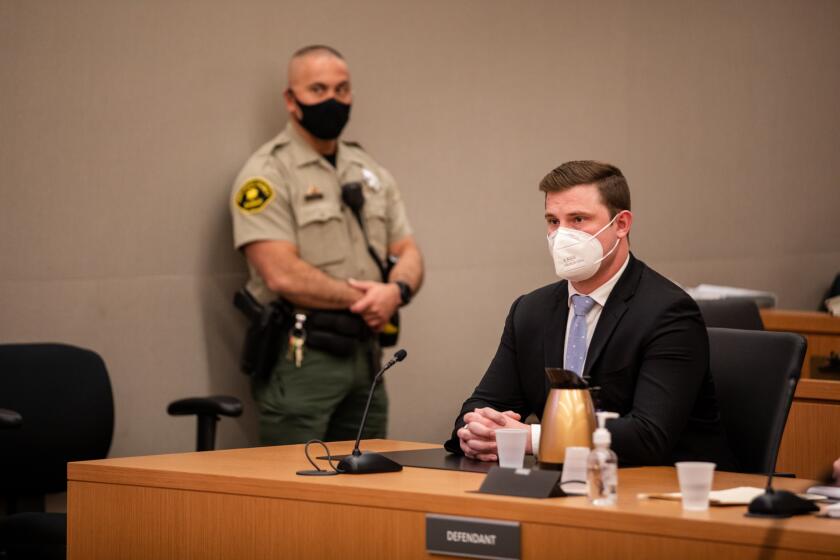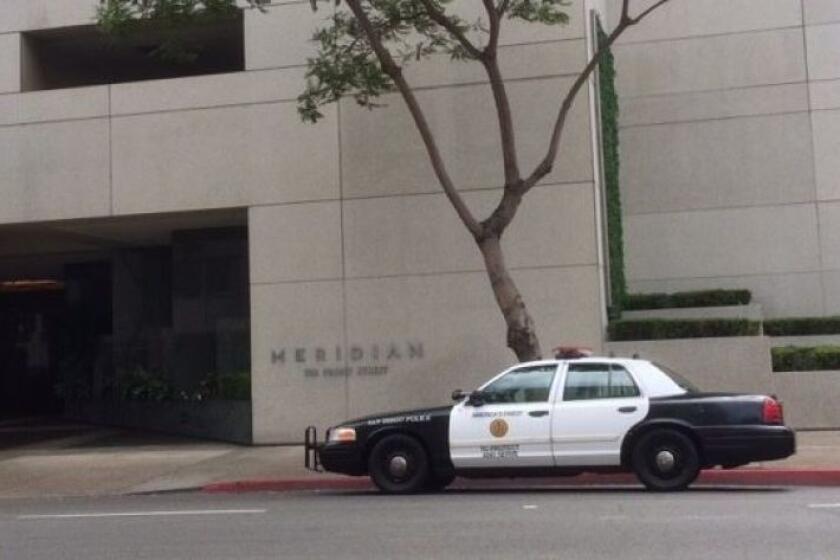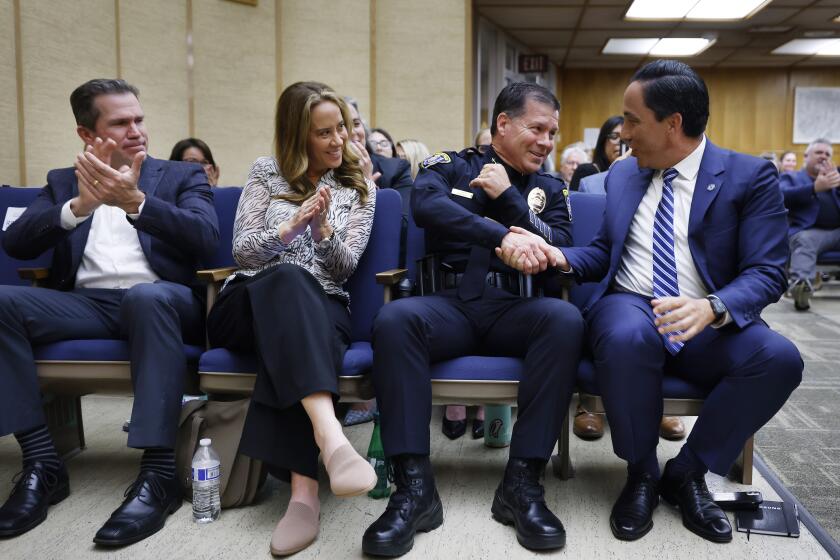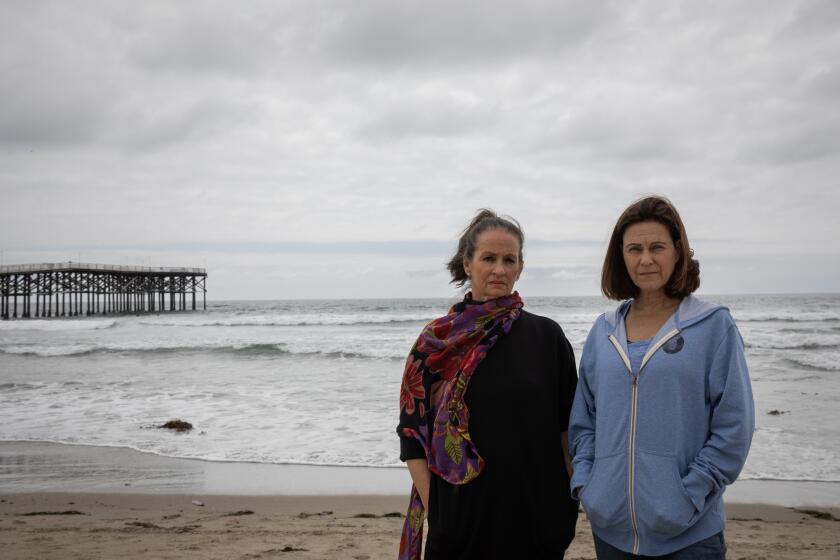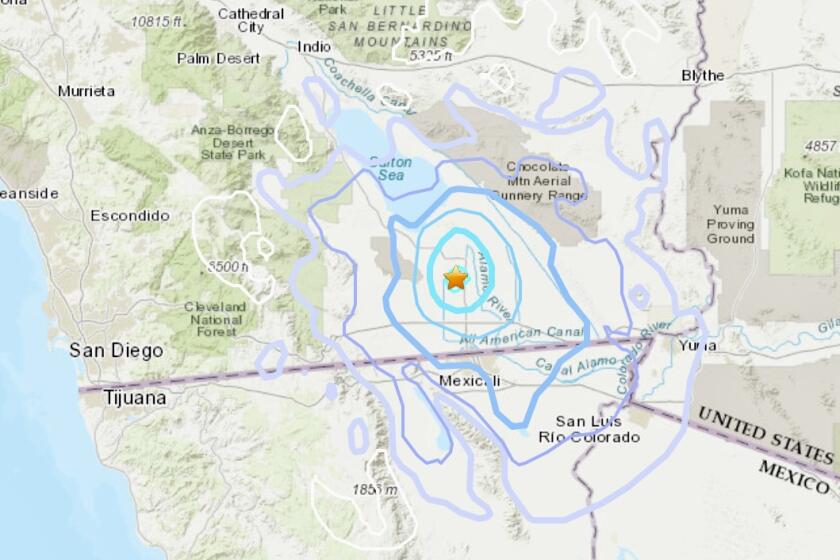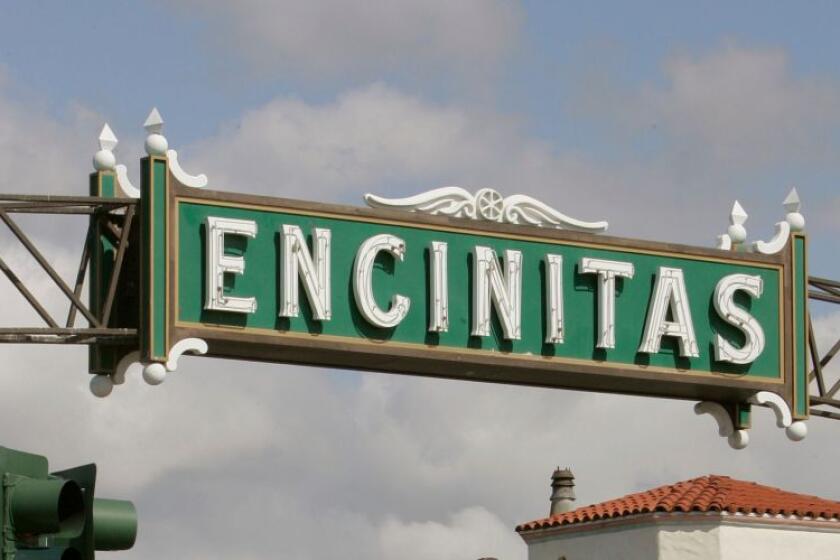San Diego lawmakers propose bill making ‘hate littering’ unlawful in wake of antisemitic flyers
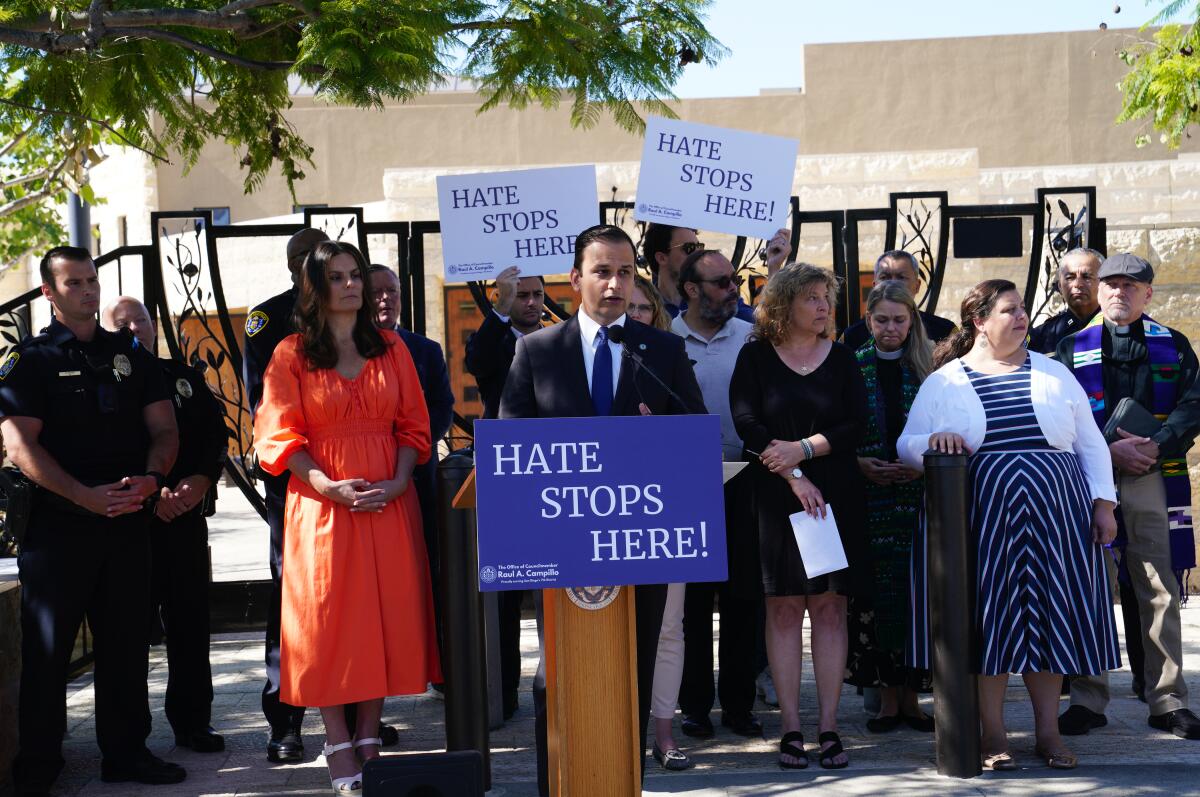
If AB 3024 passes, victims of hate littering could pursue a claim for up to $25,000 in penalties and other civil remedies
In response to a rash of antisemitic flyers posted in San Diego neighborhoods and across the state, local lawmakers are proposing a bill that would make the act unlawful — and open the door for pricey penalties.
The proposal builds on the Ralph Act, which states all California residents have the right to be free from any violence or intimidation by threat of violence because of personal characteristics such as race, religion or sexual orientation. Assemblymember Chris Ward, who put up AB 3024, discussed the Stop Hate Littering act while flanked by elected officials and Jewish community leaders at a news conference Friday morning in the community of San Carlos.
Ward’s bill would expand the definition of “intimidation by threat of violence” in that law to include littering acts, which would include instances when materials aim to terrorize owners of private property and a complaint is received and verified by local law enforcement or the Attorney General’s civil rights department, Ward said.
“These are not just pieces of papers with words. These are flyers that are intended to harass and intimidate members of our community and dehumanize them based on their religion, gender, sexual orientation, race or other characteristics,” Ward said. “They intend to sow division, inciting neighbors to turn on neighbors and to foster hateful culture which leads to fear for those targeted and violence upon them.
“These acts have no place in our communities.”
An initiative to criminalize such hate flyers was originally proposed by San Diego City Councilmember Raul Campillo in response to at least eight incidents of flyers being posted in communities including La Jolla, Poway, San Carlos and Del Cerro.
The idea was to craft an ordinance that would make it a misdemeanor for anyone to litter “with the intent to willfully injure, intimidate, interfere with, oppress, or threaten” anyone based on their “perceived characteristics,” which include race, religion and sexual orientation.
Punishment would have included up to a year in jail and a fine of up to $1,000.
But hate flyers aren’t just a San Diego issue, Campillo said at Friday’s news conference. He, Ward and other lawmakers decided a statewide approach was best.
If Ward’s bill passes, victims of hate littering could pursue a claim for up to $25,000 in penalties and other civil remedies.
“This legislation makes it crystal clear to peddlers of hate that threatening materials are not just pieces of paper,” said City Attorney Mara Elliott. “Just distributing hate flyers with the intent to intimidate and to humanize people is unacceptable, and under this bill unlawful.”
Jewish leaders and anti-hate officials applauded the idea. They said incidents such as antisemitic flyers incite hate and lead to violent attacks on Jewish community members.
They also said antisemitic incidents are on the rise, as noted in a recent Anti-Defamation League report that found antisemitic incidents in 2022 increased by more than a third over 2021. Nearly 3,700 antisemitic acts of assault, vandalism and harassment were logged across the country in 2022 — the highest year on record for such incidents since the organization began tracking them in 1979.
“We must do all that we can to speak out against this extremist activity and conduct that seeks to have our communities live in fear of hate and potential violence,” said Fabienne Perlov, regional director of the Anti-Defamation League in San Diego. “We’re here today to show that hateful actions and trespassing are not welcome here in San Diego.”
The bill will be heard at a state committee hearing April 2.
Staff writer David Garrick contributed to this report.
The latest news, as soon as it breaks.
Get our email alerts straight to your inbox.
You may occasionally receive promotional content from the San Diego Union-Tribune.

